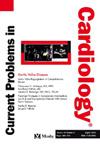Early prescription of SGLT2i for acute patient care: from current evidence to future directions
IF 3.3
3区 医学
Q2 CARDIAC & CARDIOVASCULAR SYSTEMS
引用次数: 0
Abstract
Sodium-glucose cotransporter 2 inhibitors (SGLT2i) have emerged as transformative therapies in the management of chronic heart failure (HF), offering substantial reductions in mortality and hospitalizations. Beyond their initial classification as diuretics, SGLT2i exert a spectrum of cardioprotective effects that extend far beyond renal modulation. By activating autophagic pathways and mimicking a starvation-like state, SGLT2i enhance cellular bioenergetics and mitigate acute injury, potentially underpinning both their immediate and sustained cardiometabolic benefits when administered early in acute care settings. In acute decompensated HF, early initiation of SGLT2i enhances clinical decongestion by increasing diuresis, improving diuretic efficiency, and mitigating diuretic resistance, translating to shorter hospitalizations and reduced readmissions and mortality. In acute myocardial infarction, SGLT2i reduce the incidence of first and total HF hospitalizations, arrhythmic events, adverse cardiac remodelling, and contrast-induced acute kidney injury, while mitigating stent failure and atherosclerotic progression. Furthermore, they demonstrated efficacy in preventing new-onset and recurrent supraventricular and ventricular arrhythmias. However, the evidence remains inconclusive regarding their impact on sudden cardiac death or outcomes following cardiac arrest. In critically ill patients, SGLT2i use is associated with reduced rates of acute kidney injury and the need for renal replacement therapy, with promising implications for the management of sepsis and multi-organ dysfunction. Importantly, adverse effects such as renal impairment, electrolyte disturbances, acid-base imbalances, urinary tract infections, and dysglycemia appear infrequently in this population. This narrative review synthesizes the underlying pathophysiological mechanisms, current clinical evidence, and potential future applications of early SGLT2i therapy in acute care settings, providing insights into their expanding role in contemporary cardiovascular medicine.
早期处方SGLT2i急性病人护理:从目前的证据到未来的方向
钠-葡萄糖共转运蛋白2抑制剂(SGLT2i)已成为慢性心力衰竭(HF)治疗的变革性疗法,可大幅降低死亡率和住院率。除了最初归类为利尿剂之外,SGLT2i还发挥了一系列心脏保护作用,远远超出了肾脏调节的范围。通过激活自噬途径和模拟饥饿样状态,SGLT2i增强细胞生物能量学并减轻急性损伤,在急性护理环境中早期给予SGLT2i可能支持其即时和持续的心脏代谢益处。在急性失代偿性心衰中,早期启动SGLT2i可通过增加利尿、提高利尿效率和减轻利尿剂抵抗来增强临床去充血,从而缩短住院时间、减少再入院率和死亡率。在急性心肌梗死中,SGLT2i可降低首次和总HF住院、心律失常事件、不良心脏重构和造影剂诱导的急性肾损伤的发生率,同时减轻支架失效和动脉粥样硬化进展。此外,它们在预防新发和复发性室上性和室性心律失常方面也有疗效。然而,关于它们对心源性猝死或心脏骤停后的结果的影响,证据仍然不确定。在危重患者中,SGLT2i的使用与急性肾损伤发生率的降低和肾脏替代治疗的需求相关,对脓毒症和多器官功能障碍的管理具有重要意义。重要的是,肾功能损害、电解质紊乱、酸碱失衡、尿路感染和血糖异常等不良反应在这一人群中并不常见。本文综述了SGLT2i早期治疗在急性护理环境中的潜在病理生理机制、目前的临床证据和潜在的未来应用,为其在当代心血管医学中不断扩大的作用提供了见解。
本文章由计算机程序翻译,如有差异,请以英文原文为准。
求助全文
约1分钟内获得全文
求助全文
来源期刊

Current Problems in Cardiology
医学-心血管系统
CiteScore
4.80
自引率
2.40%
发文量
392
审稿时长
6 days
期刊介绍:
Under the editorial leadership of noted cardiologist Dr. Hector O. Ventura, Current Problems in Cardiology provides focused, comprehensive coverage of important clinical topics in cardiology. Each monthly issues, addresses a selected clinical problem or condition, including pathophysiology, invasive and noninvasive diagnosis, drug therapy, surgical management, and rehabilitation; or explores the clinical applications of a diagnostic modality or a particular category of drugs. Critical commentary from the distinguished editorial board accompanies each monograph, providing readers with additional insights. An extensive bibliography in each issue saves hours of library research.
 求助内容:
求助内容: 应助结果提醒方式:
应助结果提醒方式:


